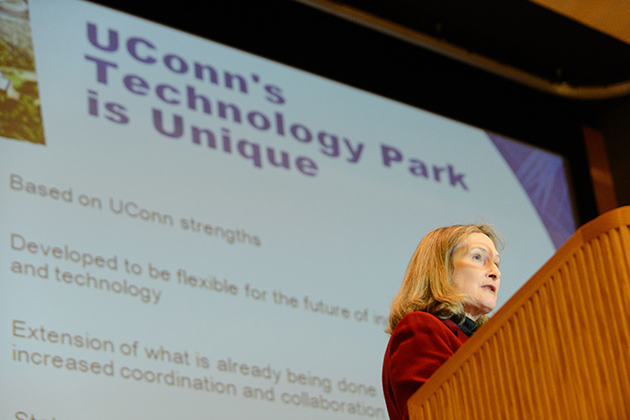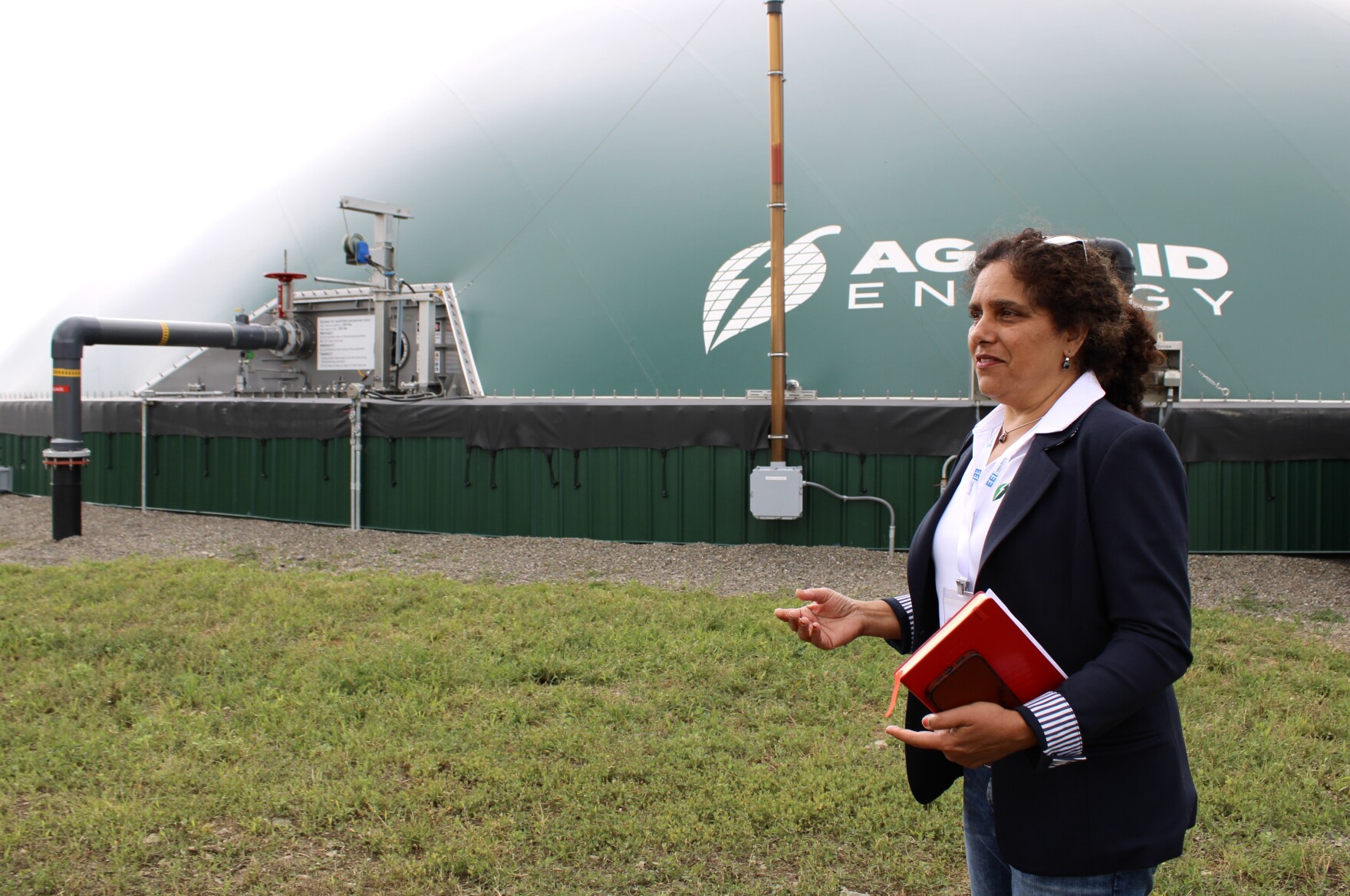
Members of the UConn community and the town of Mansfield recently got their first look at the plans for UConn’s ambitious new technology park, which is envisioned as an important driver of both research and economic growth in the region.
In presentations at the Student Union and at Mansfield Town Hall on Dec. 6, University officials and a team from the architectural firm Skidmore, Owings & Merrill unveiled the master plan for the long-sought University of Connecticut Technology Park.
“This has been a hope for some time, and it will soon become a reality,” said Mary Holz-Clause, the University’s vice president for economic development. “The Tech Park will be another way to use the strength of the University of Connecticut as a research institution to feed innovation and create jobs both in the region and throughout the state in the years ahead.”
The plan calls for the park to be built on a portion of the University known as North Campus, which is bounded by Route 44, Route 195, and North Eagleville Road. An initial facility of 125,000 square feet, the Innovation Partnership Building, is expected to be completed in 2015, and will feature research equipment, flexible-use laboratories, and business incubator space.
The ultimate goal is to design about 900,000 square feet of building space divided into three “nodes” of several buildings each, connected by footpaths and by the extension of North Hillside Road to Route 44, which will create a new entrance to campus The plan is to leave much of the area’s existing green space intact, while designing a technology park that’s in harmony with its environment, said Mark Regulinski, managing director of Skidmore, Owings & Merrill.
“The University has an asset in North Campus that makes it fundamentally different from many tech parks around the country,” he said.
The first building is being funded by an allocation of $170 million in state bonds, an effort championed and led by Senate President Donald Williams (D-Brooklyn) and Rep. Gregg Haddad (D-Mansfield), with the support of Gov. Dannel P. Malloy.
“The University and our visionary partners in state government know the UConn Technology Park will be critical for boosting the whole state economy,” Holz-Clause said.

A feasibility analysis by a tech park consulting firm estimated that the park will create between 1,000 and 1,300 jobs in its first decade. The average salary at similar technology parks around the country is roughly $75,000.
The technology park is the logical next step for a university that’s rapidly cementing its reputation as a top research institution, said Mun Choi, interim provost, noting that UConn faculty members won more than $220 million in research awards in 2012.
“We’re already a great research university,” Choi said, “but we want to expand our opportunities to work even more closely with increasing numbers of industry partners.”
About 8,000 companies are within two hours’ drive from UConn that are doing the kind of work envisioned for the tech park, including additive manufacturing, nanotechnology, genomics, and digital innovation, he added.
Ultimately, Choi said, the goal is for the project not just to attract partnerships and faculty from the region, but to draw innovative companies and researchers from around the globe to Storrs.
“We want to bring in partners who want to come to this University because of the resources we have and the skills of our faculty and students,” he said.



